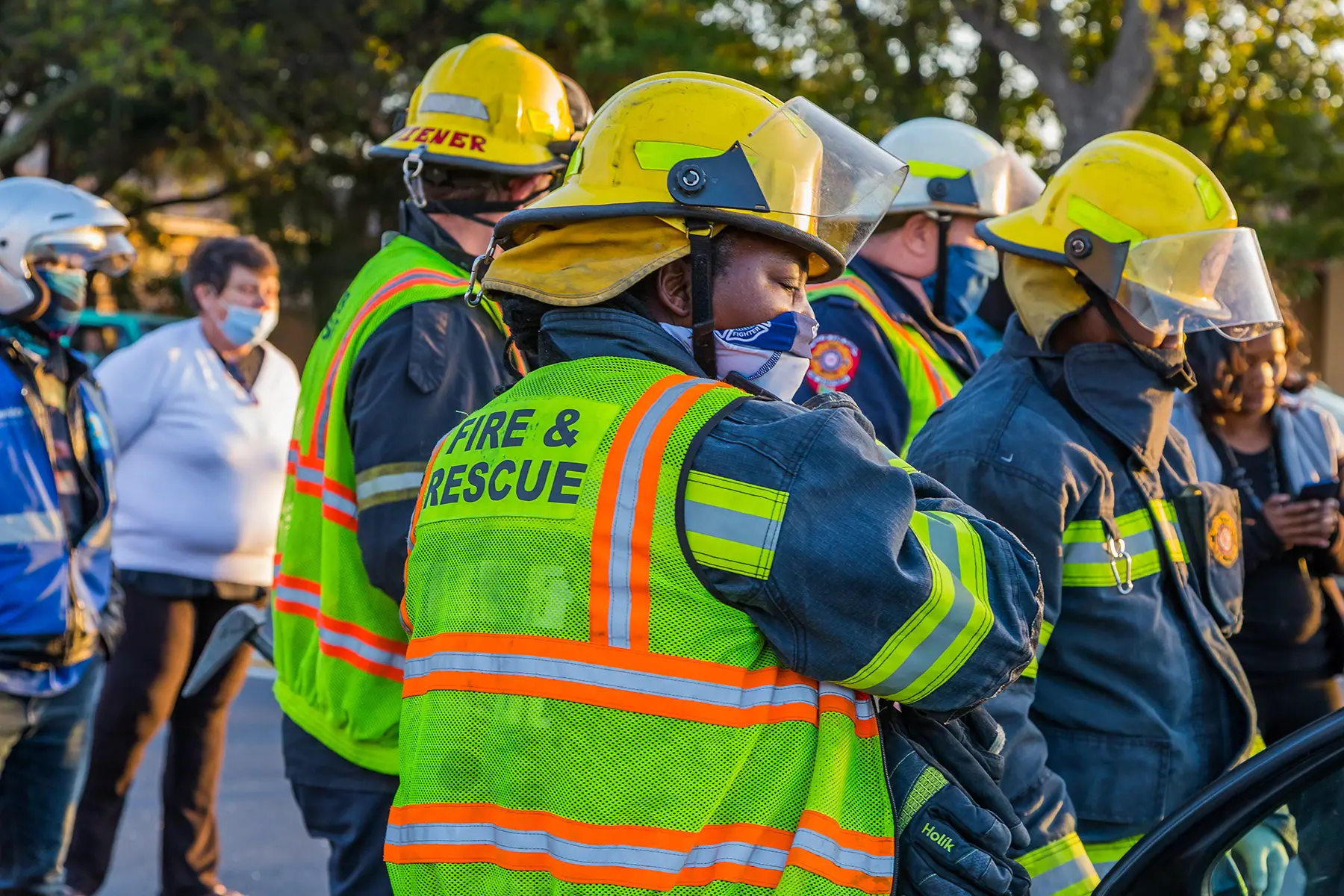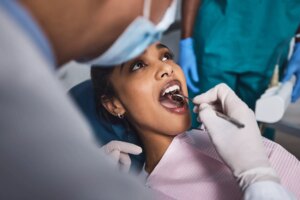When you first arrive in South Africa, you will probably be busy setting up your new life and exploring your new home. For example, you might be looking for somewhere to live, trying to find a job, and getting the kids into school. Perhaps you will explore the incredible outdoor activities, sample the local cuisine, and dive into the local culture.
However, it is also important to figure out South Africa’s healthcare system during your first week in the country. This includes understanding how to navigate sexual health in South Africa and working what your insurance covers. Continue reading to get clued up on the following topics:
- Attitudes towards sex and sexuality in South Africa
- Accessing sexual health services in South Africa
- Insurance for sexual and reproductive healthcare in South Africa
- Contraception in South Africa
- Pregnancy and childbirth in South Africa
- Abortion in South Africa
- STIs and STDs in South Africa
- Erectile dysfunction treatment in South Africa
- Feminine hygiene products in South Africa
- Cancer screenings in South Africa
- Services dealing with sexual problems in South Africa
- Services dealing with sexual abuse and assault in South Africa
- Young people’s sexual health in South Africa
- LGBT+ sexual health in South Africa
- Useful resources
Cigna Global
Enjoy peace of mind while living in South Africa with Cigna Global’s long-term international health insurance plans (12+ months). Get tailored coverage, direct billing with many providers, complex case management, and global care on demand, with access to a network of 1.5+ million doctors, specialists, and therapists.
Attitudes towards sex and sexuality in South Africa
Just as in other countries, attitudes towards sex, sexuality, and sexual health in South Africa vary. Often, you can find examples of a progressive attitude – for example, South Africa was the first country in the world to offer constitutional protection to everyone, regardless of sexual orientation. In addition, more than 80% of participants in a university study said they would not have sex if their partner refused to use a condom. Still, the same report mentions the lingering problem of sexual violence and disapproval of sex before marriage.
When it comes to opinions on LGBTQ+ issues, attitudes are similar to the United States and some European countries. Nearly 60% of people believe same-sex couples should be allowed to marry, and another 12% think they should be allowed to have some form of recognition.
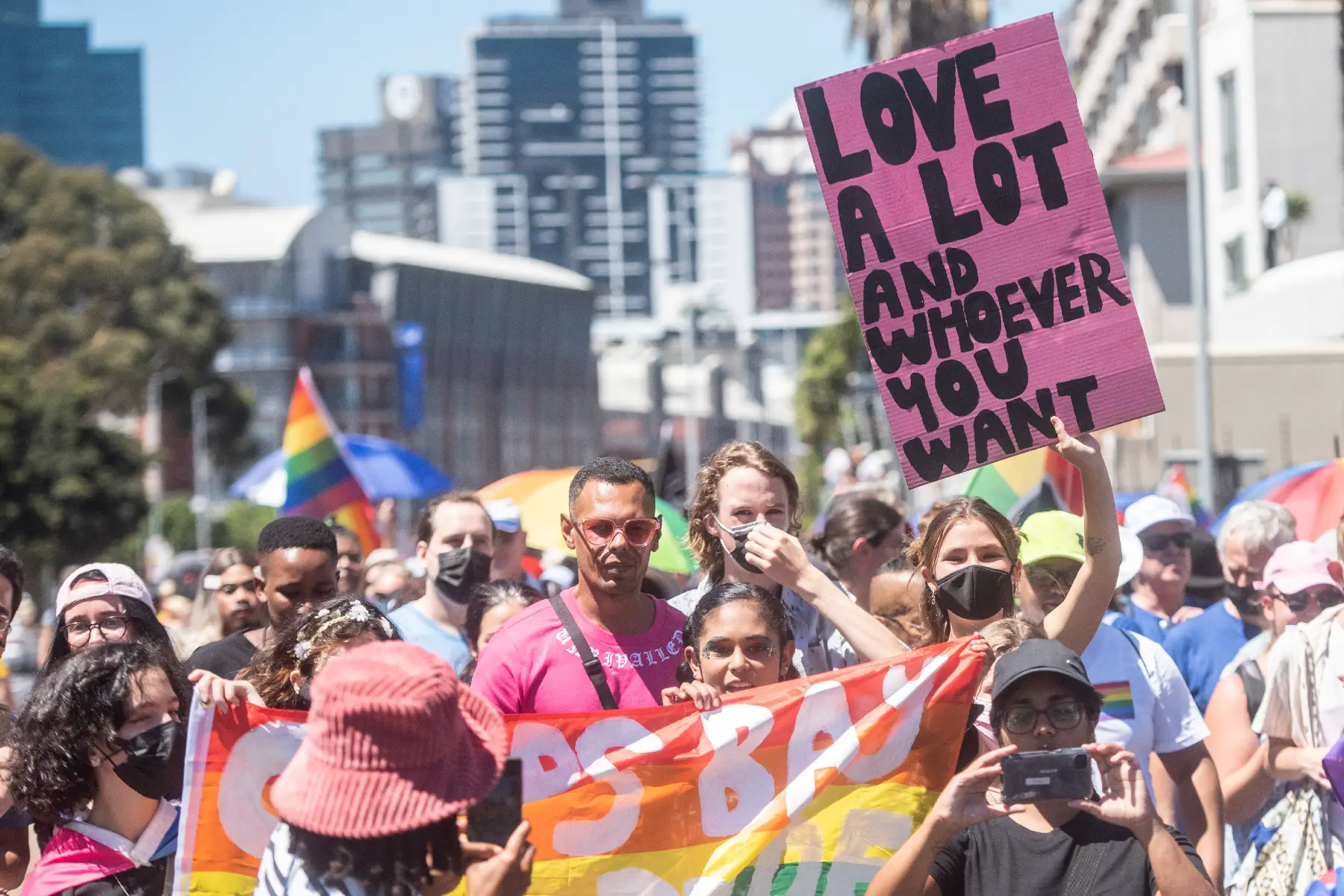
There is still work to be done to improve access to care and attitudes towards sexuality. Therefore, there are many NGOs working on education, sexual health, advocacy, and more. These include organizations supporting marginalized genders and sexualities, those fighting HIV/AIDS, and those providing education about sexual health.
Accessing sexual health services in South Africa
Sexual health services in South Africa are available through the public and private healthcare sectors, as well as a range of independent clinics and NGOs. These include various screening and treatment programs, access to contraception, and in some cases, even family planning and counseling.
In addition, everyone in South Africa can access sexual health services, regardless of their nationality. Depending on what clinic you attend, you will usually need to provide ID and insurance details, unless you plan to pay upfront.
Insurance for sexual and reproductive healthcare in South Africa
The public healthcare system covers some aspects of sexual health in South Africa. For example, this includes oral contraceptive pills, some pap smears, HIV screenings, and some STI tests. The South African constitution enshrines the right to safe, accessible, and affordable contraception. However, private insurance policies usually offer coverage for a wider range of tests, treatments, and prescriptions.
Coverage for reproductive healthcare, on the other hand, is a little more complicated. Although both public and private insurance usually cover pregnancy and maternity care, the level of coverage can vary greatly. In addition, most do not cover procedures such as IVF and egg freezing.
Global health insurers providing coverage for South Africa include:
Contraception in South Africa
Contraception is widely available across South Africa. Although there is a 64.6% contraception prevalence rate among women of reproductive age, information about different contraceptive methods is sometimes hard to come by. Still, there are numerous contraception options available for those who want it. Below is a list of some common contraceptives and where to find them.
- Male condoms – available at pharmacies, supermarkets, and some convenience stores; sometimes available free at government facilities.
- Oral contraceptive pill – available at a cost through private healthcare, but some brands are available free in the public system. You need a doctor’s prescription before buying them at pharmacies.
- Implanon implant – free from the public system, more expensive if going private. Implanon is only available through doctors and gynecologists.
- IUD – can be used for up to 12 years and is very effective at preventing pregnancy. However, it is more expensive than other options and only available through doctors and gynecologists.
- Injectables – Free from the public healthcare system, with a cost from private providers. Injections are only available through doctors and gynecologists.
- Morning-after pill – this emergency contraception is available at a small cost from doctors or pharmacies.
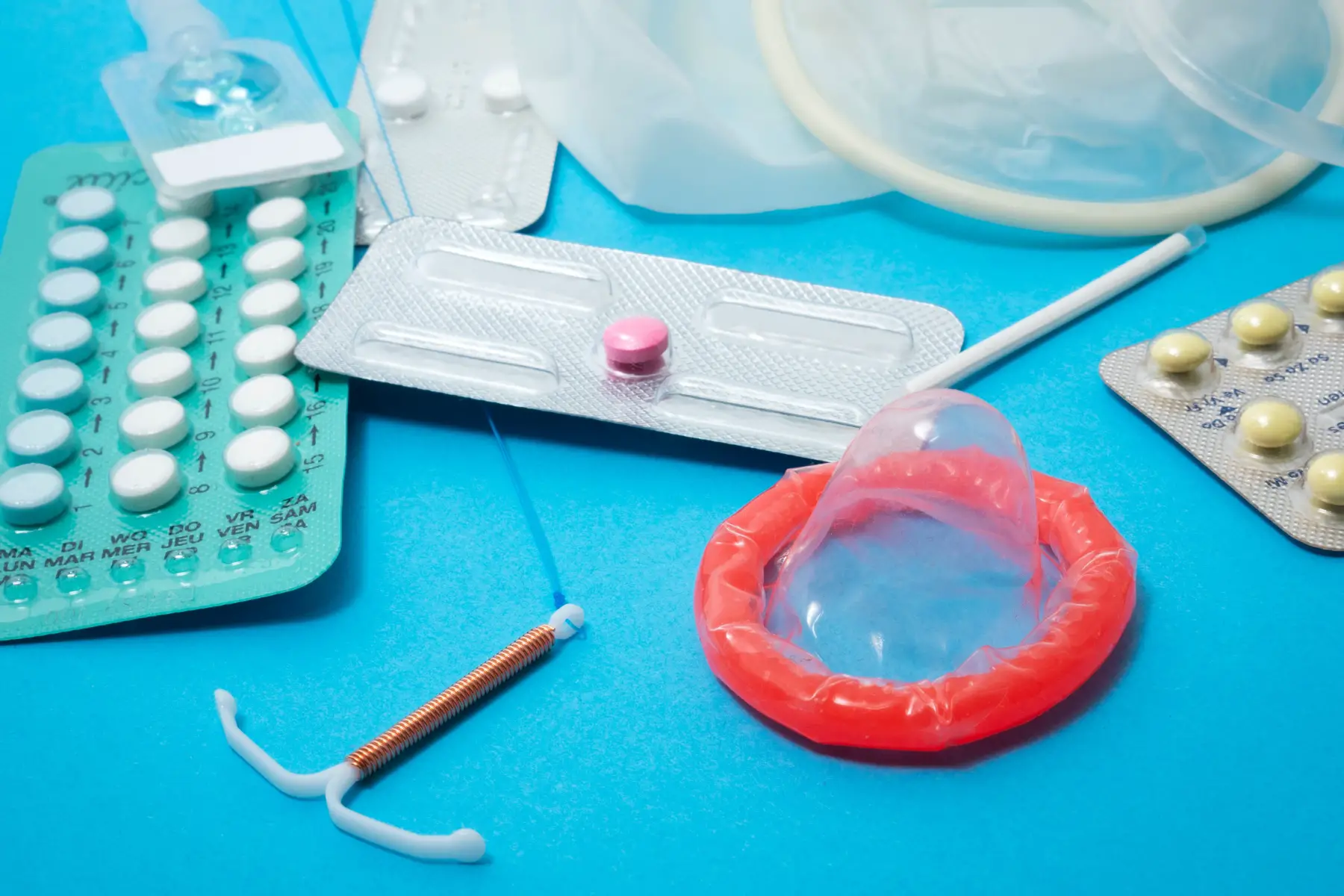
In 2012, the South African government committed to improving its family planning policies and programs. For example, Western Cape Government Health offers family planning services – including contraceptives and education – through its primary healthcare clinics. However, there are also many private clinics and NGOs that offer family planning services, such as Marie Stopes.
Pregnancy and childbirth in South Africa
Sexual healthcare in South Africa includes family planning, pregnancy, and childbirth. Though the public system and government hospitals offer affordable maternity care, many expat women choose to use the private system when pregnant. This can be expensive, but the standard of care is much higher. Be sure to take a tour of potential birthing centers and ask as many questions as you can to ensure you pick a clinic you are comfortable with.
You will have regular ultrasounds during your pregnancy, but scans normally take place between 11 and 13 weeks and again between 18 and 22 weeks. In addition, most women in South Africa receive a tetanus toxoid (TT) immunization during their pregnancy. Numerous antenatal classes are available to help you prepare for birth and looking after your baby.
Abortion in South Africa
Sexual health in South Africa covers abortions, which have been legal in the country since 1996. Any woman, regardless of age or relationship status, can access abortions without giving a reason until the 13th week of pregnancy. It is still possible to get an abortion after this date, but only under certain conditions. These are free at government hospitals, through private clinics and women-focused healthcare centers offer terminations, too.
STIs and STDs in South Africa
STIs are a sexual health concern in South Africa. In fact, in 2017, there were 5.8 million new cases of chlamydia in South Africa, which makes it the most prevalent STI in the country. However, gonorrhea and syphilis are also of concern, with 4.5 million and 70,675 new cases respectively. There are several reasons for this prevalence, including limited or expensive access to screening and treatment, and lack of knowledge and training among residents and healthcare workers.
STI testing in South Africa can be expensive. You can find a list of prices for different screenings on Better2Know or request information about payment from Marie Stopes. However, treatment for STIs can be accessed for free. Some private healthcare insurance covers testing through GPs and gynecologists, but bear in mind that you will need to pay out of pocket if this is not the case.
HIV/AIDS in South Africa
HIV and AIDS are two of the biggest sexual health concerns in South Africa. The country has a 12.6% HIV prevalence rate, and in 2017, some 7.06 million residents were living with HIV. However, the government has implemented several programs highlighting HIV and AIDS prevention. These include free HIV tests at public clinics, free antiretroviral treatment for anyone who tests positive, and the prevention of mother-to-child transmission.
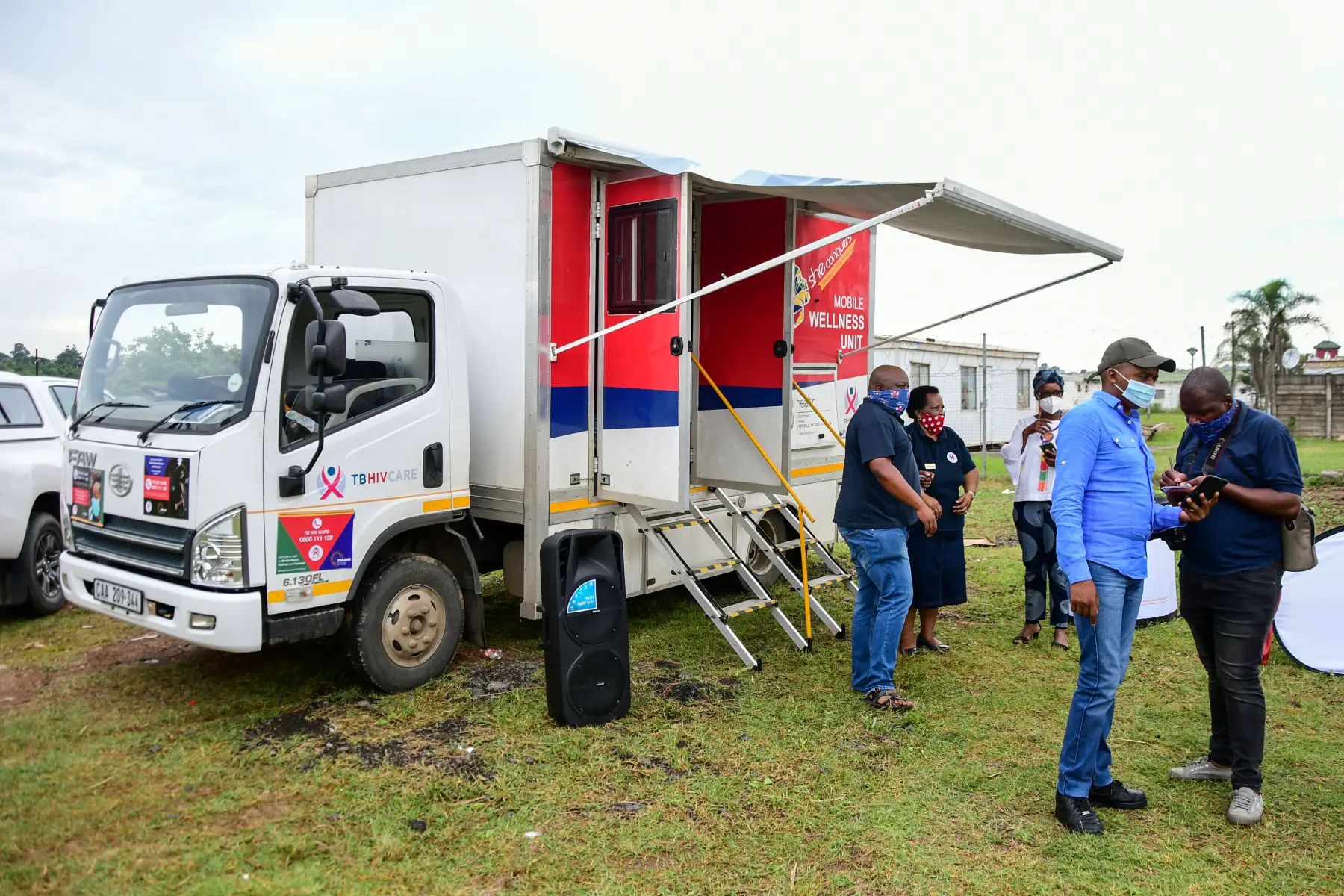
In addition, there are numerous non-governmental organizations that work to fight HIV and AIDS in South Africa, including the AIDS Foundation of South Africa and the South African National AIDS Council.
Erectile dysfunction treatment in South Africa
As with most countries, sexual healthcare in South Africa includes diagnosing and treating erectile dysfunction. Although this is available in the public healthcare system, it is often easier and quicker to go through private clinics to treat erectile dysfunction. Your doctor can recommend the most appropriate treatment plan, which might include lifestyle changes, prescription medication, injections, vacuum devices, or implants.
Feminine hygiene products in South Africa
Various of feminine hygiene products are available in South Africa, from pads and tampons to more environmentally-friendly menstrual cups. You can easily purchase these at pharmacies and supermarkets. Although period poverty is still a problem in South Africa, VAT on these products was abolished in 2019. You can find examples of prices on Clicks online health store.
Cancer screenings in South Africa
Breast and cervical cancer have the highest prevalence rates among women in South Africa, while prostate and colorectal are the most common cancers for men in the country. Both genders also see high rates of Non-Hodgkin’s Lymphoma.
How to get screened for cervical cancer
Cervical cancer is one of the most common cancers among women in South Africa. In fact, in 2019, there were 6,945 new cases diagnosed in the country. The South African Department of Health offers three free non-symptomatic pap smears to women in South Africa at age 30, 40, and 50. However, the Cancer Association of South Africa recommends getting tested more often.
As the Human Papilloma Virus (HPV) is the leading cause of cervical cancer, the Department of Health also gives an HPV vaccination free of charge to girls in grade four of primary school. If you are keen to receive a vaccine or wish to take a smear test, contact your healthcare provider.
How to get screened for breast cancer
Like many other countries, South Africa has a reasonably high occurrence of breast cancer, with 10,172 new cases diagnosed in 2019. Mammograms are available through both the public and private healthcare systems, and it’s recommended that women over 40 go for non-symptomatic screenings once a year (twice a year for women over 55). In addition, there are many non-governmental organizations that raise awareness of breast cancer and offer screenings outside the traditional healthcare setting.
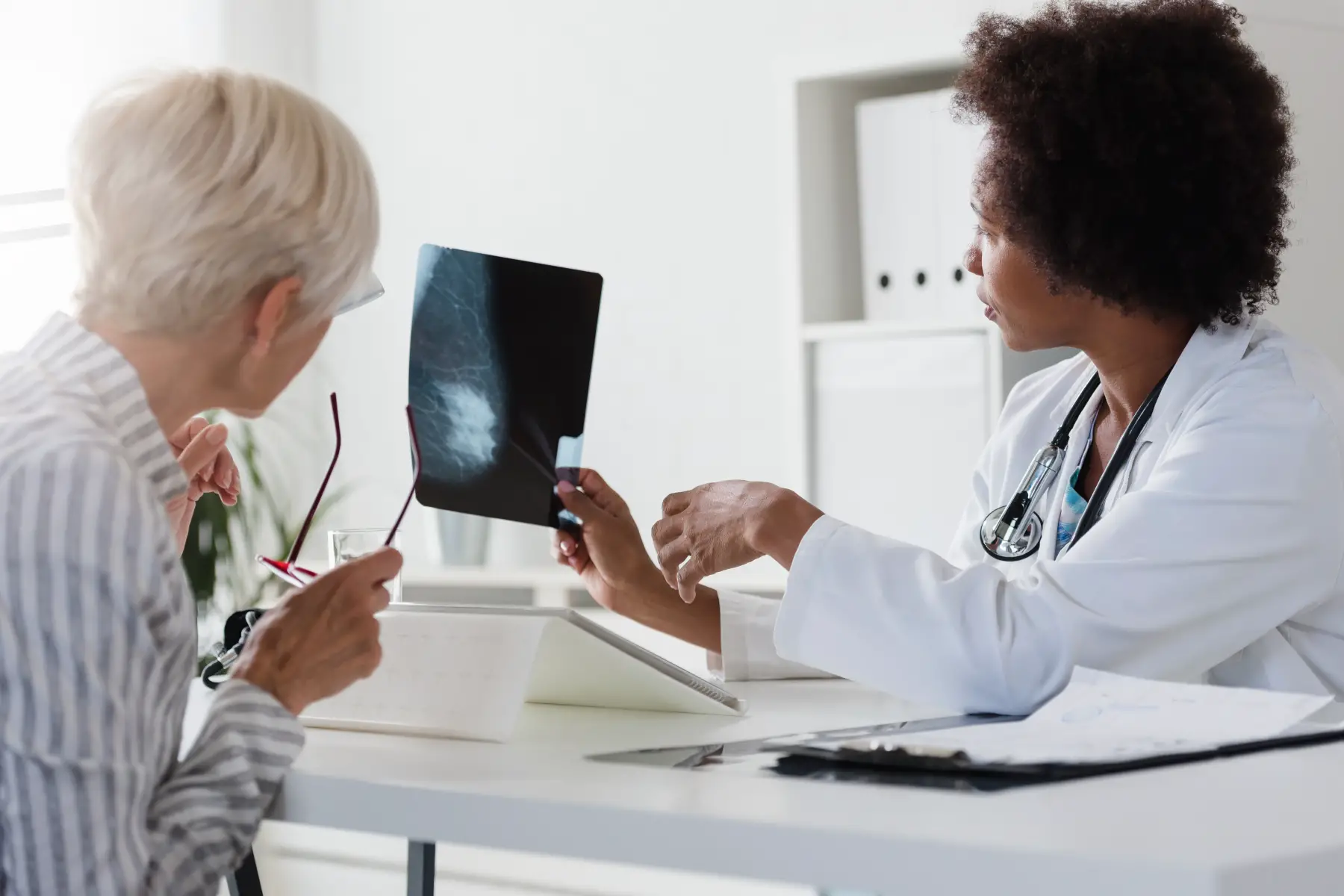
How to get screened for prostate cancer
Prostate cancer is one of the most common cancers for men in South Africa, with 10,495 new cases in 2019. Although there is no official screening program, the Cancer Association of South Africa recommends that men at risk of prostate cancer get annual screenings from age 40.
Services dealing with sexual problems in South Africa
Many health professionals deal with sexual health issues in South Africa. These can range from medical doctors who focus on sexual health to psychologists dealing with sexual health, sexologists, physiotherapists, and intimacy coaches. Most of these operate as private services through individual practices or collective clinics such as My Sexual Health, though some services are available through the public system. In most cases, insurance policies will not cover private consultations.
Services dealing with sexual abuse and assault in South Africa
Sexual health services in South Africa include a range of organizations that focus on assisting those dealing with sexual abuse and assault. The South African Police Service can provide immediate support, as they usually offer shelter, medical treatment, and counseling.
There are also numerous other government-run institutions and NGOs that offer services dealing with sexual abuse and assault, including:
- People Opposed to Woman Abuse (POWA) – counseling, temporary shelter, and legal help
- Families South Africa (FAMSA) – counseling and education for families, help for domestic violence and trauma, and divorce mediation
- Thuthuzela Care Centres – government-run one-stop anti-rape facilities for reporting and opening cases, trial and prosecution, medical attention, and counseling
- Safer Spaces – legal advice, counseling, and resources
Young people’s sexual health in South Africa
Sex education
In South Africa, schools offer Comprehensive Sexual Education to help students understand sexual health. However, the Ministry of Education is careful to emphasize that this is not the same as sex education. Still, the program aims to increase safe sexual practices and the use of contraception, reduce risky sexual behavior and STI or HIV infections, and combat gender-based violence. Despite this government initiative, as of 2016, only 5% of South African schools offered the program.
Youth sexual health
Although statistics are hard to come by, a few figures offer insight into youth sexual health in South Africa. For example, 10.9% of births in the country in 2017 were to girls aged 10–19. In addition, only 64.5% of sexually active women aged 15–24 in South Africa report using contraception.
LGBT+ sexual health in South Africa
Same-sex relationships in South Africa
Although attitudes can still be somewhat conservative, South Africa is the only African country that legally recognizes same-sex relationships. In fact, it has recognized same-sex marriages since 2006, offers legal protection against discrimination based on sexual orientation, and criminalizes hate crimes and speech.
Sexual health for LGBT+ in South Africa
Despite the legal protections in place for the LGBT+ community in South Africa, there is still much work to be done. For example, sexual health services in South Africa geared towards this community are lacking. In addition, many LGBT youths mention facing stigma and prejudice within the local healthcare system. As such, they prefer to use private health services which are more cognizant about handling their health concerns.
Notably, there is one sexual health program specifically geared to the LGBT+ community in the country. The South African National LGBTI HIV Framework addresses HIV, STIs, and TB within the community with healthcare, empowerment, psychosocial support, and more. The program aims to reduce HIV by 63% and TB by 30% while increasing the detection of STIs by 70%.
Healthcare support for trans people still falls short. For example, those relying on the public healthcare system may find extremely long waits for hormone replacement therapy (HRT) and gender-affirming surgery. In addition, transgender people report challenges and discrimination when trying to access care. While the private route may be quicker, it can also be very expensive. Some NGOs and charities offer HRT for free and counseling.
Useful resources
- The Cancer Association of South Africa (CANSA) – information and support on cancer prevention, diagnosis, and treatment in South Africa
- South African Police Service – details about reporting sexual assaults
- My Sexual Health – private sexual health clinic in South Africa
- Infertility Awareness Association of South Africa (IFAASA) – NGO promoting access to infertility treatment and providing information for those affected
- South African National AIDS Council
- AIDS Foundation South Africa
- Marie Stopes – private family planning clinic in South Africa
- Professional Association for Transgender Health South Africa (PATHSA) – health and well-being for trans and gender diverse people






